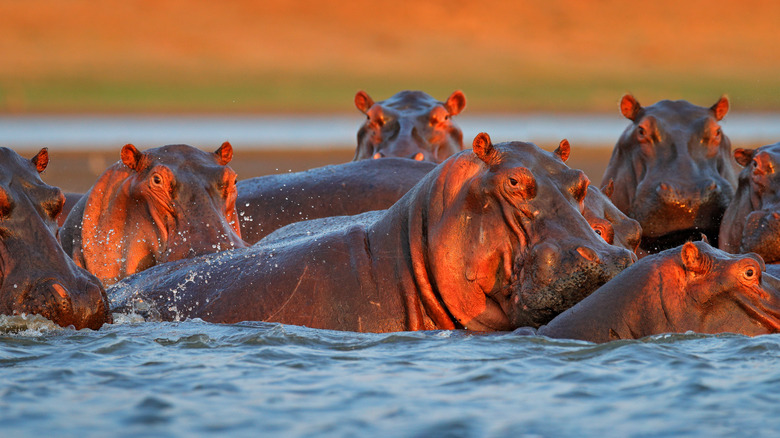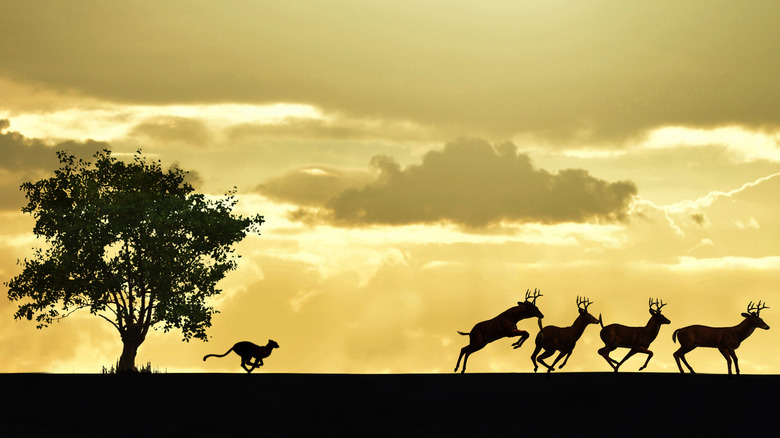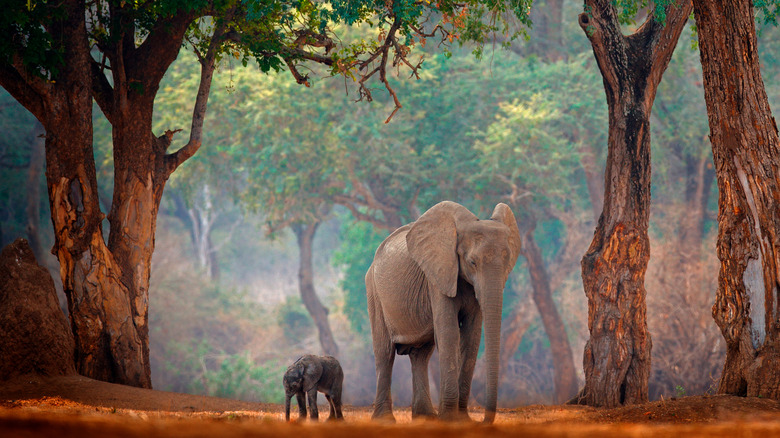Stretched along the lower Zambezi River in Zimbabwe, Mana Pools National Park is a UNESCO World Heritage Site and one of the world’s most incredible destinations for animal lovers. The park encompasses approximately 2,612 square miles of riverine floodplains, baobab-studded grasslands, and dense forests — a setting so wild and exotic, it’s like a scene right out of “The Lion King.” The name of the park, Mana, translates to four in a local language, referring to the four permanent watering holes that are the park’s lifeblood: Chisasiko, Chine, the Green Pool, and the Long Pool, which is over 3.5 miles long. Zimbabwe’s largest population of hippos and crocodiles live in and around these pools, along with 450 species of nesting and migratory birds, including fish eagles, waterfowl, and vibrant carmine bee-eaters.
In addition, during the dry season between July and October, a wide variety of animals pass by the watering holes, making for incredible wildlife viewing opportunities. During these months, visitors can see elephants, zebras, buffalo, elands, waterbucks, and antelope at or in the vicinity of the pools. Predators, like lions, leopards, cheetahs, hyenas, and especially wild dogs (also called “painted wolves”), can often be seen lurking near the herds of ungulates, sniffing around for an easy lunch or lounging in the grasses after feasting. Unfortunately, rhinos are no longer present due to a history of poaching in the area.
Ways to see animals in Mana Pools National Park

What sets this safari destination apart from others is not only its rich wildlife, but also the variety of ways to see it: on land, in a vehicle or on foot, and on the water, by canoe. Traditional 4×4 safari vehicles provide a comfortable and secure place from which to observe and photograph the wildlife. These tours are perfect for covering lots of ground and spotting the largest variety of animals, which may hang out in different areas of the park.
Guided walking tours provide a deeper immersion into the wild side of a safari experience. Because Mana Pools has offered walking safaris for many years, the animals have grown accustomed to the sight and smell of curious human pedestrians and don’t panic or flee in their presence. This means that guides can take visitors closer to the animals to experience the feel, sounds, and scents of the scenery, and sometimes even the animals themselves. If you elect a walking safari, however, be prepared with the right clothing to avoid unwanted itchiness.
Yet another way to view Mana Pools wildlife is a canoeing safari along the Zambezi River. Gliding noiselessly along the water is the most serene of all the safari options. It also offers a whole new vantage point for seeing animals: elephant families splashing each other at the riverside; hippos, whose large funny heads bob up and down in the river; and waterfowl.
Overnight stays in the park

Staying overnight is a chance to experience the magic of Mana Pools National Park by moonlight. The park offers a range of tented camps from rustic to luxurious, each providing ample opportunities to see majestic animals by day and by night deep in the heart of the African wilderness. Besides accommodation and meals, many camps offer day and night safaris, birdwatching, fishing, and other tours. In addition, the lodge in the park, the Mana Pools Safari Lodge, features 12 luxurious eco-friendly chalets and wildlife viewing opportunities (especially birds) from its dining room and other areas of the property.
A visit to Mana Pools National Park can be combined with trips to other amazing national parks in Zimbabwe. Among these, Hwange National Park is the largest at over 5,850 square miles and boasts over 107 species of mammals, including Zimbabwe’s largest population of elephants. In addition, Zimbabwe is home to one of the largest waterfalls in the world, Victoria Falls, an absolute must-see when exploring this part of Africa.

